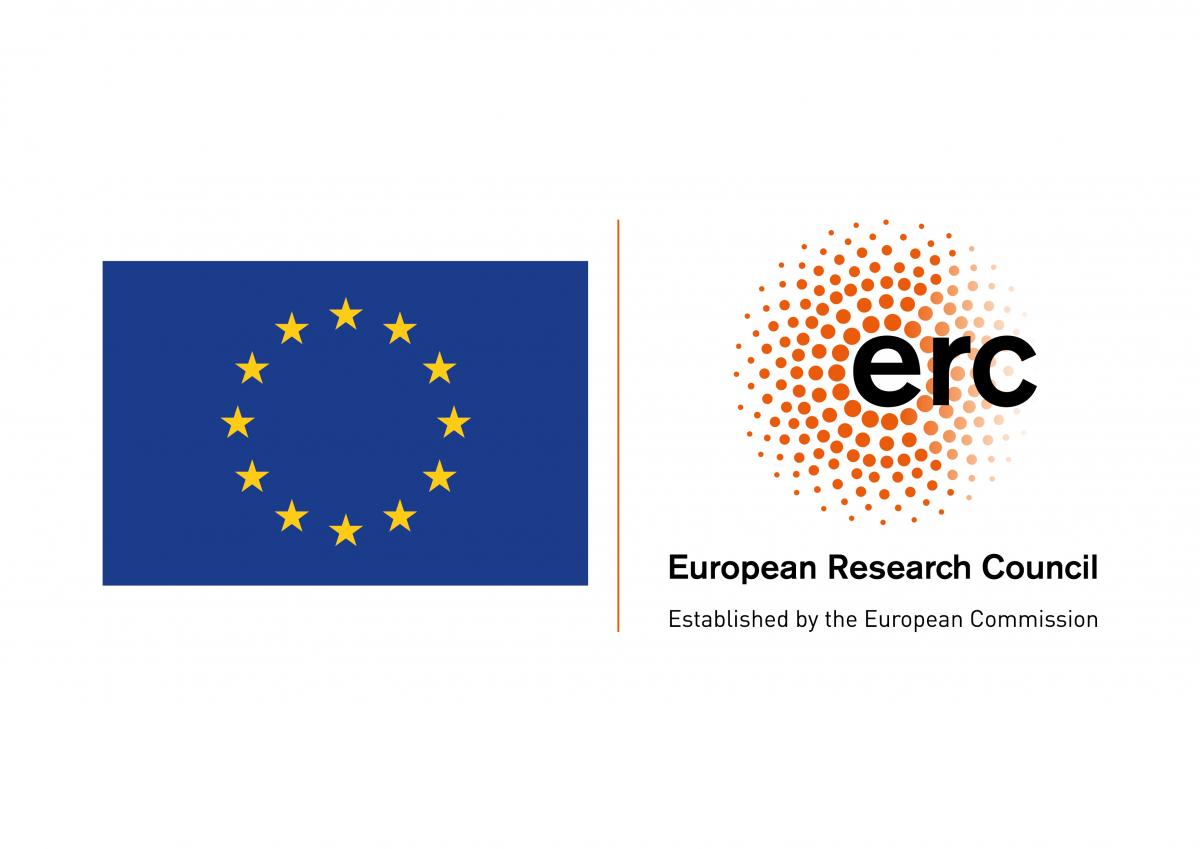European projects

Institut Polytechnique de Paris actively supports the participation of its researchers in European projects.
Need support? Find out more about the Institute's Grants Office.

Horizon Europe
Horizon Europe is the European Union’s framework program for research and innovation for the period 2021-2027. Its aim is to invest in the future, notably by tackling climate change and helping to achieve the UN's sustainable development objectives. To achieve this, it is founded on several pillars, in particular the “science of excellence” pillar (including funding from the European Research Council) and thematic clusters to facilitate collaboration and strengthen the impact of research and innovation on global issues (inter alia: Health; Digital, Industry and Space; Climate, Energy and Mobility, etc.).
European Research Council Grants
The main activity of the European Research Council (ERC) is to provide attractive, long-term funding to help scientists and their teams pursue innovative and ambitious research. Scientists from all fields of research, whatever their age or career stage, may apply. ERC funding is awarded without pre-determined priorities.
ERC Synergy Grants allow a small group of two to four scientists to jointly tackle ambitious problems that they and their teams would not be able to solve alone. Synergy projects must have the aim of achieving substantial breakthroughs resulting, for example, from collaboration between scientific fields, fruitful new areas of research, or new methods and techniques, including unconventional approaches. Synergy grants may amount to a maximum of €10 million over a 6-year period. Additional funding of €4 million may be requested.
Reverse engineering the assembly of the hippocampal scaffold with novel optical and transgenic strategies (HOPE)
- Driven by: Emmanuel Beaurepaire at CNRS
- Laboratory: Laboratoire d’optique et biosciences (LOB)
- Read more
Atmospheric Water Cycle over Antarctica: Past, Present and Future (AWACA)
- Driven by: Thomas Dubos et Christophe Genthon at Ecole Polytechnique
- Laboratory: Laboratoire de météorologie dynamique (LMD
- Read more
On intelligence and networks (OCEAN)
- Driven by: Eric Moulines at Ecole Polytechnique
- Laboratory: Centre de mathématiques appliquées (CMAP)
- Read more
ERC Advanced Grants are designed to help scientists at a stage in their career when they are already leading researchers. Scientists must demonstrate the innovative character, ambition and feasibility of their scientific proposal. They must be active researchers and have conducted significant research studies over the last ten years. ERC Advanced Grants may amount to a maximum of €2.5 million over a 5-year period. Additional funding of €1 million may be requested.
Stochastic dynamics of single cells: Growth, Emergence and Resistance (SINGER)
- Driven by: Sylvie Méléard at Ecole Polytechnique
- Laboratory: Centre de mathématiques appliquées (CMAP)
Generating extreme neutrons for achieving controlled r-process nucleosynthesis (GENESIS)
- Driven by: Julien Fuchs at CNRS
- Laboratory: Laboratoire pour l'utilisation des lasers intenses (LULI)
- Read more
Firms and Their Networks (FIRMNET)
- Driven by: Francis Kramarz at CNRS
- Laboratory: Centre de recherche en économie et statistique (CREST)
- Read more
Privacy and Utility Allied (HYPATIA)
- Driven by: Catuscia Palamidessi at Inria
- Laboratory: Laboratoire d'informatique of Ecole Polytechnique (LIX)
- Read more
Modeling the past climates of planet Mars to understand its geology, its habitability and its evolution (Mars through time)
- Driven by: François Forget at CNRS
- Laboratory: Laboratoire de météorologie dynamique (LMD)
- Read more
Hybrid and Interpretable Deep neural audio machines (HI-AUDIO)
- Driven by: Gaël Richard at IMT
- Laboratory: Laboratoire de traitement et communication de l’information (LTCI)
- Read more
Mesoscale organisation of tropical convection (MAESTRO)
- Driven by: Bony, Sandrine at CNRS
- Laboratory: Laboratoire de météorologie dynamique (LMD)
ERC Consolidator Grants support scientists when they are still in the process of consolidating their own research team or programme. Scientists must demonstrate the innovative character, ambition and feasibility of their project. They must have successfully defended their (first) doctorate at least 7 years and up to 12 years prior to the application. ERC Consolidator Grants may amount to a maximum of €2 million over a 5-year period. Additional funding of €1 million may be requested
- Charting a New Horizon of Big and Fast Data Analysis through Integrated Algorithm Design (BigFastData)
- Driven by: Yanlei Diao à l’École polytechnique
- Laboratory: Laboratoire d'informatique of Ecole Polytechnique (LIX)
- Read more
- Fundamental properties and time-scan of QCD matter at high densities and temperature exposed by jet substructure in heavy ion collisions with CMS experiment at the LHC (QCDHighDensityCMS)
- Driven by: Leticia Cunqueiro* at Ecole Polytechnique
- Laboratory: Laboratoire Leprince-Ringuet (LLR)
- Read more
- Synthesis and properties of f-block organometallics: en route to the φ-bond (PhiBond)
- Driven by: Greg Nocton at CNRS
- Laboratory: Laboratoire de chimie moléculaire (LCM)
- Read more
- The Bootstrap Program for Quantum Field Theory (QFTinADS)
- Elasticity, capillarity and imbibition in textiles (ElCapiTex)
- Driven by: Camille Duprat at Ecole Polytechnique
- Laboratory: Laboratoire d'hydrodynamique (LadHyX)
- Read more
- Information Frictions in Hiring Decisions (INASHI)
- Driven by: Roland Rathelot at GENES
- Laboratory: Centre de recherche en économie et statistique (CREST)
- Read more
- Universal Geometric Transfer Learning (VEGA)
- Driven by: Maks Ovsjanikov at Ecole Polytechnique
- Laboratory: Laboratoire d'informatique of Ecole Polytechnique (LIX)
- Read more
Les bourses ERC Starting Grants sont conçues pour épauler les scientifiques qui démarrent leur propre équipe ou programme de recherche. Les scientifiques doivent avoir soutenu avec succès leur (premier) doctorat au moins deux ans et jusqu'à sept ans avant la demande et avoir déjà démontré leur potentiel d'indépendance en matière de recherche. Les bourses ERC Starting Grants peuvent atteindre un maximum de 1,5 million d'euros pour une période de 5 ans. Un financement supplémentaire d'un million d'euros peut être demandé.
- Pipet Based Scanning Probe Microscopy Tip-Enhanced Raman Spectroscopy: A Novel Approach for TERS in Liquids (AQUARAMAN)
- Driven by: Aleix Guell at Ecole Polytechnique
- Laboratory: Laboratoire de physique des interfaces et couches minces (LPICM)
- Read more
- Exploring Relations in Structured Data with Functional Maps (EXPROTEA)
- Driven by: Maks Ovsjanikov at Ecole Polytechnique
- Laboratory: Laboratoire d'informatique of Ecole Polytechnique (LIX)
- Read more
- Hydrodynamics, holography and strongly-coupled quantum matter (HHQM)
- Driven by: Blaise Goutéraux** at Ecole Polytechnique
- Laboratory: Centre de physique théorique (CPHT)
- Read more
- Communication Using the Nonlinear Fourier Transform (COMNFT)
- Driven by: Mansoor Yousefi at IMT
- Laboratory: Laboratoire de traitement et communication de l'information (LTCI)
- Read more
- Organisation of Clouds, and implications for tropical cyclones and for the energetics of the tropics, in current and in a warming climate (CLUSTER)
- Driven by: Caroline Muller* at CNRS
- Laboratory: Laboratoire de météorologie dynamique (LMD)
- Read more
- Information Encoding in Quantum Gravity and the Black Hole Information Paradox (HoloHair)
- Driven by: Andrea Puhm* at CNRS
- Laboratory: Centre de physique théorique (CPHT)
- Read more
- Harnessing solid-state thermal cycling to Guide microstructure evolution of Additively Manufactured Metallic Alloys (GAMMA)
- Driven by: Manas Upadhyay at Ecole Polytechnique
- Laboratory: Laboratoire de mécanique des solides (LMS)
- Read more
- Manipulating single fermions with light in cQED architectures (FERMIcQED)
- Driven by: Landry Bretheau at Ecole Polytechnique
- Laboratory: Laboratoire de Physique de la matière condensée (PMC)
- Read more
- Peers and Possible Partners: Exploring the Origins of Population Long-term Equilibria (P3OPLE)
- Driven by: Pauline Rossi at Ecole Polytechnique
- Laboratory: Centre de recherche en économie et statistique (CREST)
- Read more
- Measuring and Mitigating Risks of AI-driven Information Targeting (MOMENTOUS)
- Driven by: Oana Goga** at CNRS
- Laboratory: Laboratoire d'informatique of Ecole Polytechnique (LIX)
- Read more
- Finding the ‘missing environmentality’ (FINDME)
- Driven by: Felix Tropf* at GENES
- Laboratoire: Centre de recherche en économie et statistique (CREST)
- Read more
- Experimental signatures of quantum electrodynamics in the strong field regime (EXAFIELD)
- Driven by: Adrien Leblanc at CNRS
- Laboratory: Laboratoire d’optique appliquée (LOA)
- Read more
- Atomic scale coherent manipulation of the electron spin in semiconductors (OneSPIN)
- Driven by: Fabian Cadiz at Ecole Polytechnique
- Laboratory: Laboratoire de Physique de la matière condensée (PMC)
- Read more
ERC Proof of Concept Grants aim to facilitate the exploration of the commercial and social innovation potential of ERC-funded research projects, by funding further studies (i.e. activities that were not intended to be funded by the original ERC Exploratory Research Grant). ERC Proof of Concept Grants are thus only offered to scientists whose proposals build substantially on their ERC-funded research.













